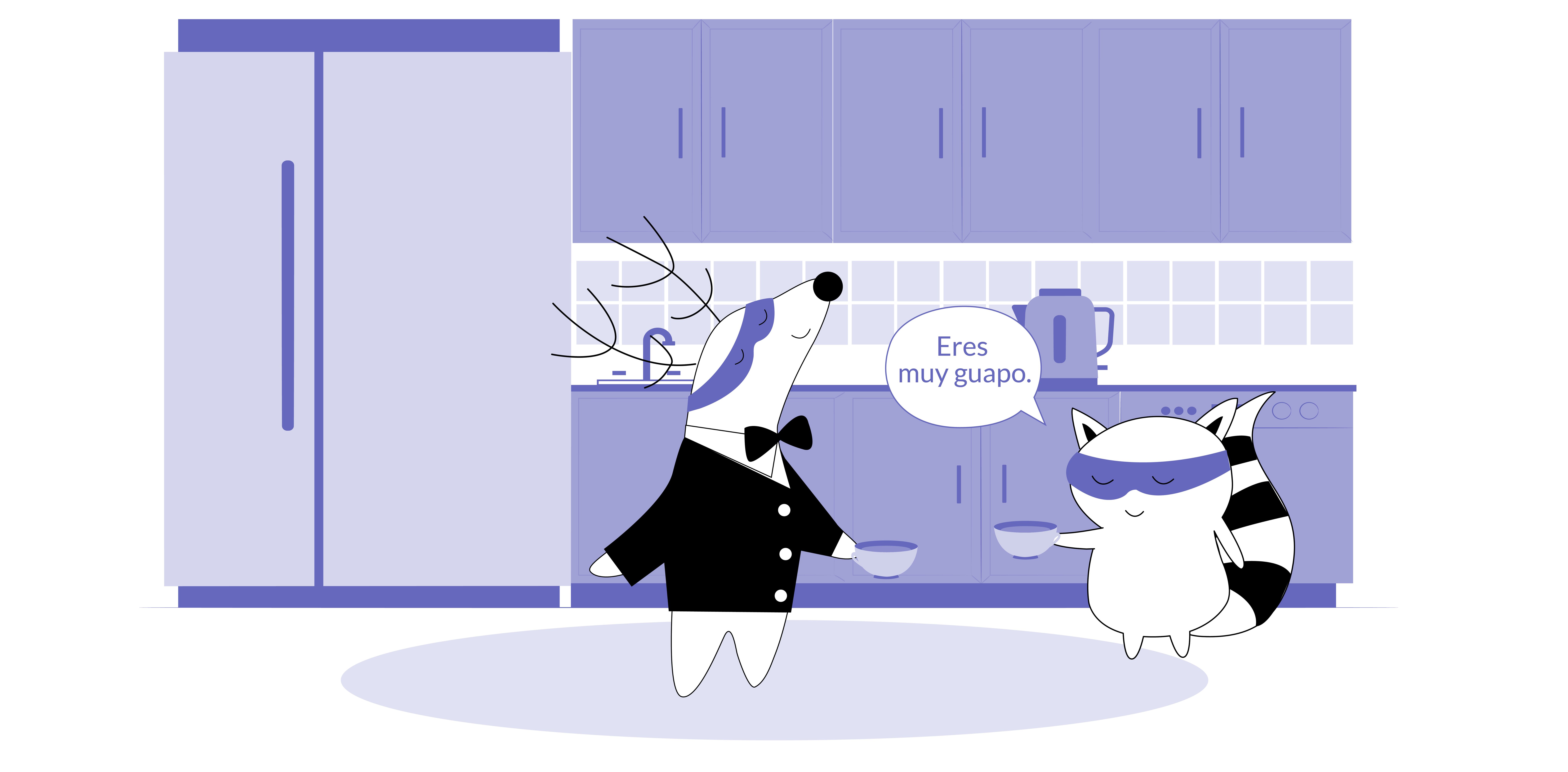
Complimenting someone in their native language can be a heartwarming way to connect and show appreciation. For Spanish vocabulary learners, mastering the art of compliments can enrich conversation and help you make friends wherever Spanish is spoken.
From flattering someone's appearance to praising their intelligence, knowing just what to say is key. In this guide, we will explore 10 common Spanish compliments, provide context and examples, and give you the English translation to help you understand the nuance behind each phrase.
Learn Spanish with Langster
Eres muy guapo/guapa
Spanish
English
Eres muy guapo/guapa.
You are very handsome/beautiful.
While Eres muy guapo/guapa is a common compliment, the appropriateness of its use can depend heavily on the social and cultural context. In many Spanish-speaking countries (especially Latin America), complimenting someone on their appearance is seen as friendly and harmless when done in a respectful manner.
However, it's essential to consider the relationship between the speaker and the recipient.
This phrase is more suitable for friends, peers, or informal settings. Utilizing it in a professional context or with someone you've just met can be misconstrued and may not be well-received. Always gauge the level of familiarity and the setting before offering personal compliments to ensure they are taken as intended.
Spanish
English
Eres muy guapo y tienes una sonrisa encantadora.
You are very handsome and you have a charming smile.
Eres muy guapa esta noche. Tu vestido es precioso.
You are very beautiful tonight. Your dress is lovely.
Tienes una sonrisa hermosa
Spanish
English
Tienes una sonrisa hermosa.
You have a beautiful smile.
Complimenting someone on their smile is universally seen as warm and friendly. When it comes to Spanish culture, where personal connections and emotions are highly valued, such a compliment can significantly brighten someone's day and make interactions more positive.
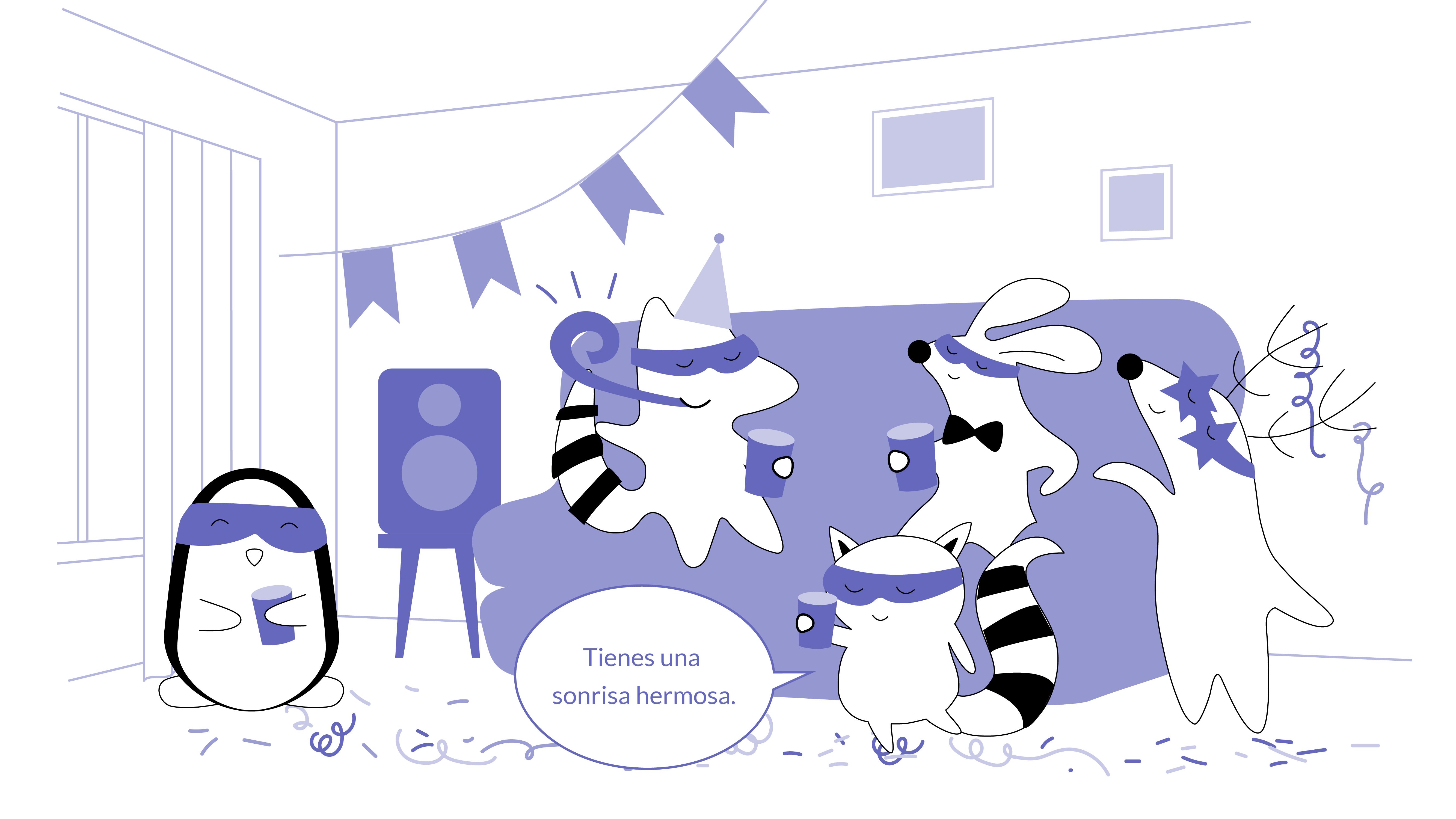
This phrase is appropriate in both formal and informal settings, making it a versatile choice for Spanish language learners. It's a wonderful way to express appreciation for someone's positivity or to make a gentle and kind-hearted connection with someone, whether they are a friend, colleague, or even a stranger.
Something similar would be:
Spanish
English
Tienes el cabello muy bonito.
You have beautiful hair.
Here’s how you can incorporate this phrase into a more elaborate compliment:
Spanish
English
Cuando sonríes, iluminas la habitación. Tienes una sonrisa hermosa.
When you smile, you light up the room. You have a beautiful smile.
Me gusta tu sonrisa, es hermosa.
I like your smile, it's beautiful.
Buen trabajo
Spanish
English
Buen trabajo.
Good job.
This is a versatile compliment that can be used in various contexts, from acknowledging someone's effort in a professional setting to praising a personal achievement. Buen trabajo or un trabajo bien hecho is a way to recognize someone's hard work, dedication, or skill, and it encourages positive reinforcement.
Whether you are in a workplace, academic, or casual setting, this phrase can boost morale and strengthen relationships. In Spanish, the tone of voice can also play a role in how this compliment is perceived. Saying it with enthusiasm and sincerity can convey genuine appreciation and make the recipient feel valued.
Spanish
English
Terminaste el proyecto antes de la fecha límite. ¡Buen trabajo!
You finished the project before the deadline. Good job!
Aprobaste tu examen de español con una calificación alta. ¡Buen trabajo!
You passed your Spanish exam with a high grade. Good job!
Te ves muy bien
Spanish
English
Te ves muy bien.
You look very good.
This compliment is often used to acknowledge someone's overall appearance in a positive light, whether it is their clothing, hair, or even a sense of confidence they exude. It is suitable for both casual and semi-formal contexts, making it a versatile phrase for both friends and acquaintances.
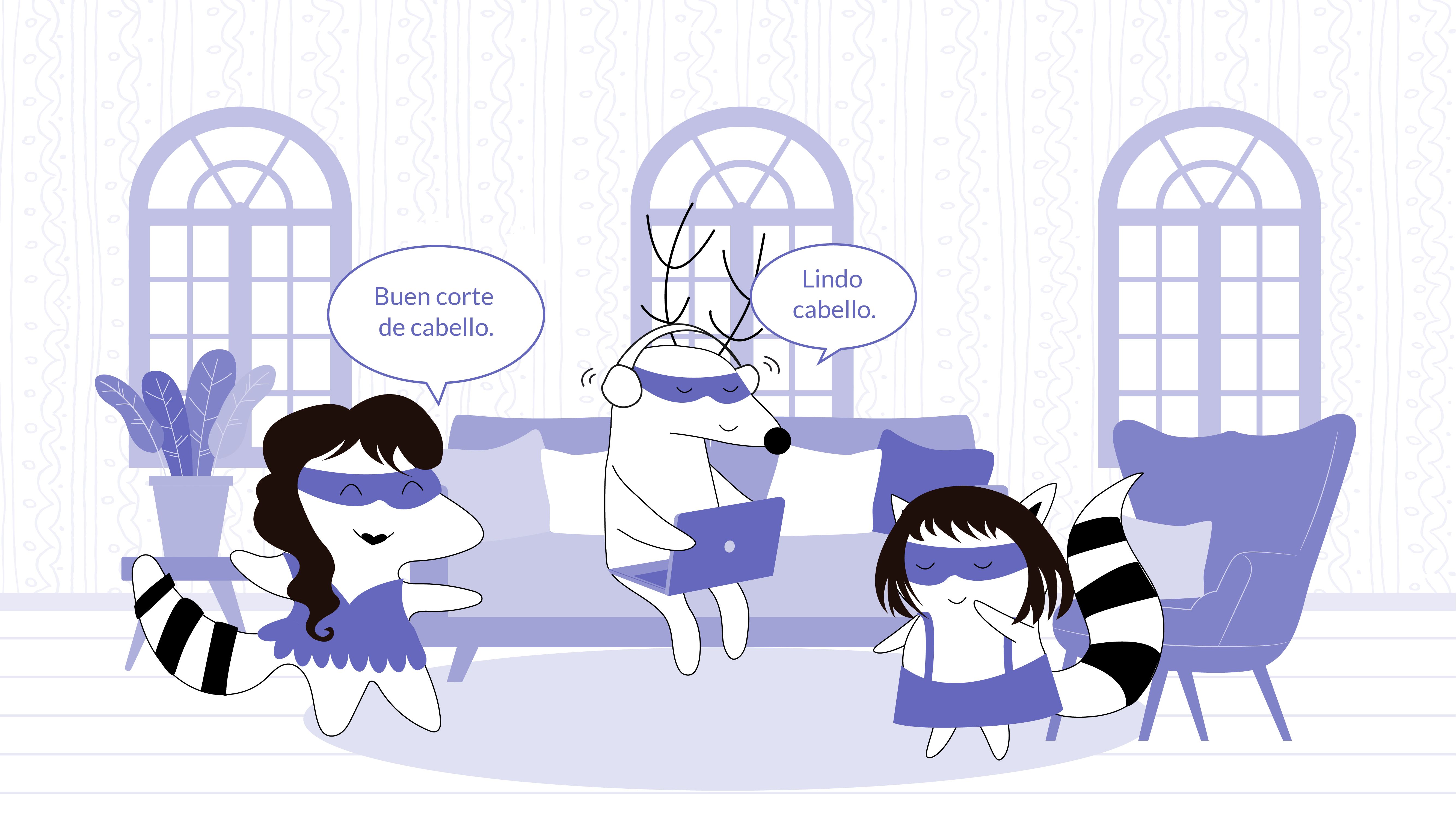
Like other appearance-based compliments, the key is the delivery with genuine affection and without overstepping personal boundaries. The phrase can serve as a simple but effective morale booster, offering a quick uplift to someone's day, and can be especially appreciated when someone has put in extra effort to look nice for an occasion.
Spanish
English
Te ves muy bien con ese nuevo corte de pelo.
You look very good with that new haircut.
Para tu entrevista de trabajo, te ves muy bien. ¡Éxito!
For your job interview, you look very good. Good luck!
Me ha encantado la presentación
Spanish
English
Me ha encantado la presentación.
I loved the presentation.
This compliment is a heartfelt way to express appreciation for someone's effort, skill, and creativity in preparing and delivering a presentation. It goes beyond mere acknowledgment, conveying a deep sense of admiration and personal impact for your Spanish friends.
It's particularly suitable for academic and professional settings or any scenario where someone has made a presentation or performance. Using this phrase shows that you are not only impressed by the content but also touched by the way it was conveyed, making it an encouraging and supportive response to someone's hard work.
Spanish
English
Me ha encantado la presentación; era informativa y muy bien estructurada.
I loved the presentation; it was informative and very well structured.
Sobre el tema que hablaste, me ha encantado la presentación. Has captado completamente mi atención.
Regarding the topic you spoke about, I loved the presentation. You completely captured my attention.
Lo has hecho muy bien
Spanish
English
Lo has hecho muy bien.
You have done it very well.
This Spanish compliment is a strong form of encouragement and recognition in any Spanish speaking country, perfect for acknowledging someone's success, effort, or skill in completing a task or achieving a goal. It can be used in a variety of settings, from personal achievements and academic work to professional projects and creative endeavors.
Lo has hecho muy bien is a way to express that not only was the task completed, but it was done with a level of excellence that deserves recognition. It is a motivational phrase that reinforces positive behavior and outcomes, encouraging the individual to continue their hard work and dedication.
Spanish
English
Lo has hecho muy bien en tu presentación. Se notó tu preparación.
You have done it very well in your presentation. Your preparation was noticeable.
Después de tanto esfuerzo en el entrenamiento, lo has hecho muy bien en el partido.
After so much effort in training, you have done it very well in the match.
Tienes buen gusto
Spanish
English
Tienes buen gusto.
You have good taste.
This Spanish compliment is usually directed towards someone's ability to choose or appreciate high-quality or aesthetically pleasing things, whether in fashion, art, food, or even interior decoration. It's a way of acknowledging the discernment and sophistication in someone’s choices.
The phrase can foster a great sense of shared aesthetic values and can be particularly meaningful when coming from someone with a reputed sense of style or appreciation for the finer things.
Spanish
English
Esa corbata que escogiste es hermosa. Tienes buen gusto.
That tie you chose is beautiful. You have good taste.
La decoración de tu casa es impresionante. Tienes buen gusto.
The decoration of your house is impressive. You have good taste.
Editor's Pick: Which Compliment To Use?
When selecting compliments in Spanish, bien hecho stands out as a versatile choice suitable for various contexts. It's an uplifting compliment that can brighten someone's day and foster positive connections.
It also offers recognition and encouragement, whether for professional achievements or personal endeavors, making it a valuable tool for fostering motivation and reinforcing positive behavior.
Different Ways to Respond to Spanish Compliments
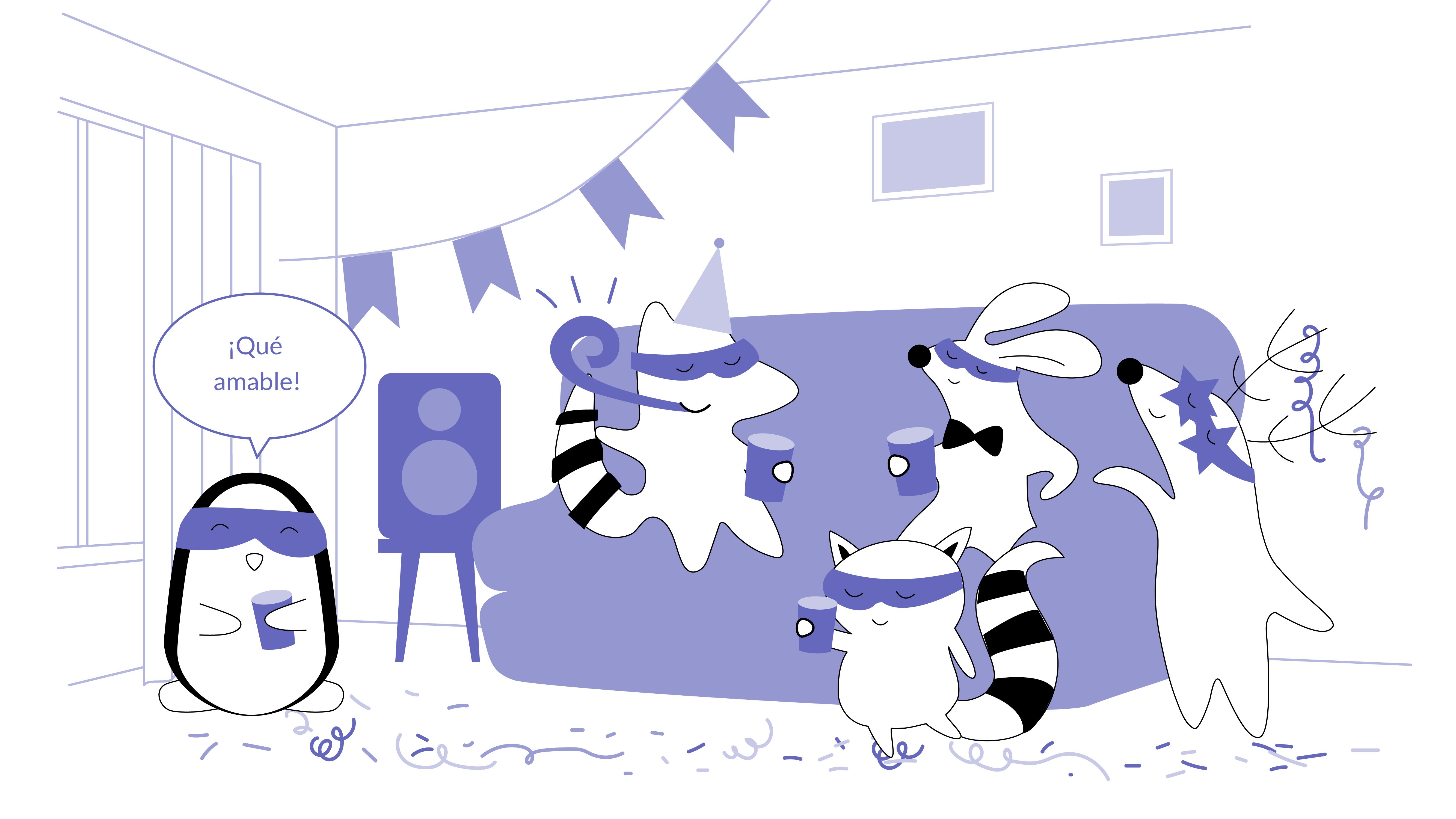
Receiving compliments gracefully can sometimes feel as challenging as giving them, especially in a language that is not your first.
In Spanish, just like in many languages, there are various ways to respond to compliments, each depending on the context, your relationship with the person, and the degree of formality.
Here are some common and polite ways to respond if you're learning Spanish:
| Spanish Phrase | Translation | Context |
|---|---|---|
| ¡Gracias por el cumplido! | Thank you! | This is the most straightforward and universally appropriate response. It's simple, polite, and works in any situation. |
| ¡Qué amable! | How kind! | Use this phrase to acknowledge the kindness behind the compliment. It’s a way of thanking someone for their nice comments while highlighting their gentleness or thoughtfulness. |
| Te lo agradezco mucho. | I really appreciate it. | This response is a bit more formal and emphasizes the gratitude you feel towards the compliment giver. |
| Me alegra que pienses así. Tienes un gran sentido del humor. | I'm glad you think so. You have a great sense of humor. | Use this when you want to express happiness or satisfaction that someone has a positive opinion about you or something you've done. |
| Eres muy amable. | You're very kind. | This phrase turns the focus back on the person giving the compliment, acknowledging their kindness. |
| ¡No exageres! | Don't exaggerate! | A playful and modest way to respond, suggesting that you think the compliment might be more than you deserve. It's often used among friends. |
| Spanish Phrase | Translation | Context |
|---|---|---|
| ¡Gracias por el cumplido! | Thank you! | This is the most straightforward and universally appropriate response. It's simple, polite, and works in any situation. |
| ¡Qué amable! | How kind! | Use this phrase to acknowledge the kindness behind the compliment. It’s a way of thanking someone for their nice comments while highlighting their gentleness or thoughtfulness. |
| Te lo agradezco mucho. | I really appreciate it. | This response is a bit more formal and emphasizes the gratitude you feel towards the compliment giver. |
| Me alegra que pienses así. Tienes un gran sentido del humor. | I'm glad you think so. You have a great sense of humor. | Use this when you want to express happiness or satisfaction that someone has a positive opinion about you or something you've done. |
| Eres muy amable. | You're very kind. | This phrase turns the focus back on the person giving the compliment, acknowledging their kindness. |
| ¡No exageres! | Don't exaggerate! | A playful and modest way to respond, suggesting that you think the compliment might be more than you deserve. It's often used among friends. |
The Bottom Line
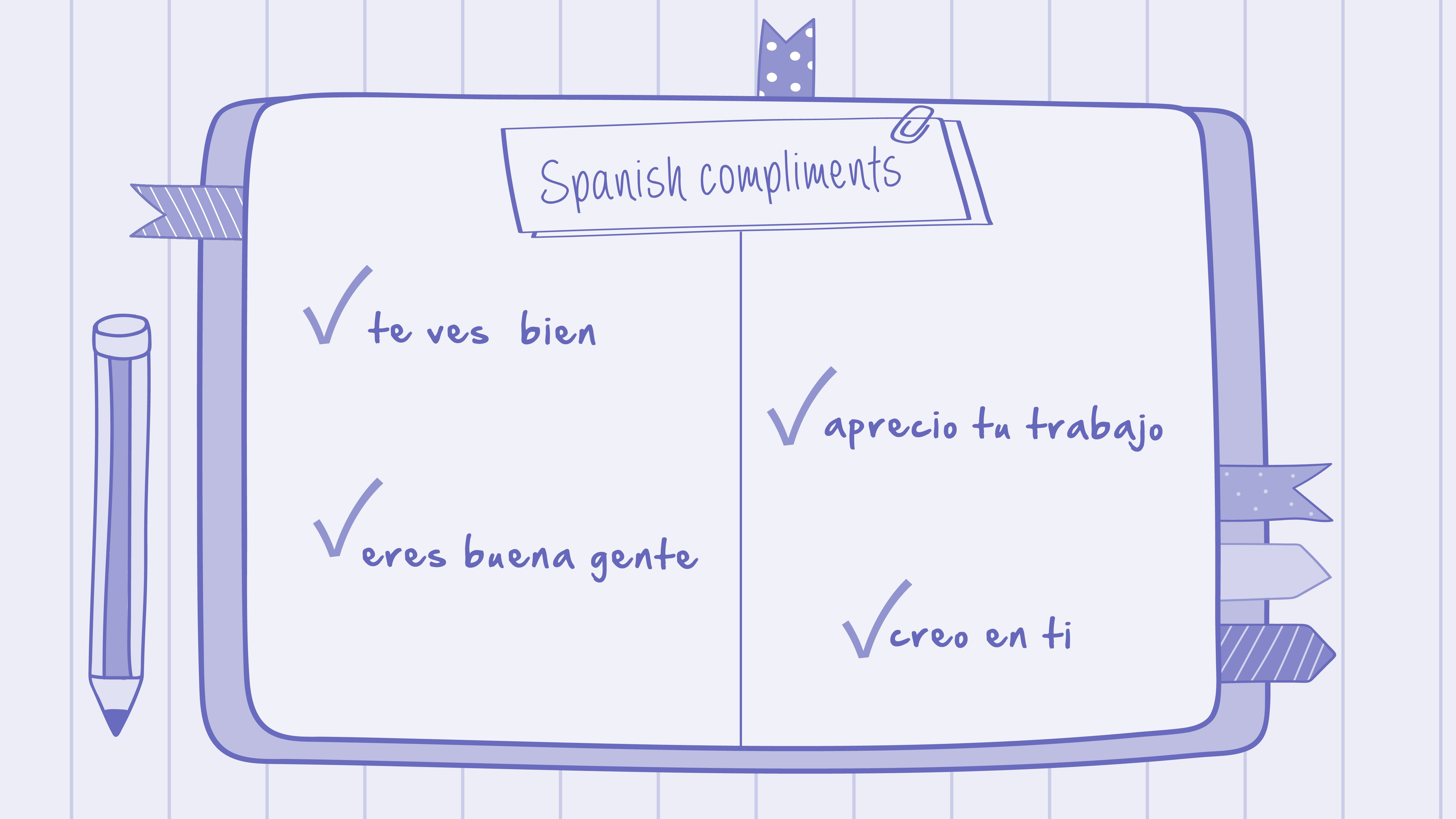
Mastering the art of giving and receiving compliments in Spanish is more than just a mark of fluency; it's a doorway to building stronger, more authentic relationships and understanding the cultural nuances that make Spanish so deeply captivating.
It's through these everyday interactions that language learners can truly immerse themselves in the beauty of Spanish culture, whether it's in personal conversations, professional settings, or social gatherings.
To further refine your Spanish communication skills and immerse yourself in the language's rich cultural tapestry, we invite you to explore Langster. Discover a world of interactive stories, real-life scenarios, and practical exercises designed specifically to enhance your Spanish learning journey. Download Langster today, and take your Spanish to new heights, one compliment at a time.
Learn Spanish with Langster









